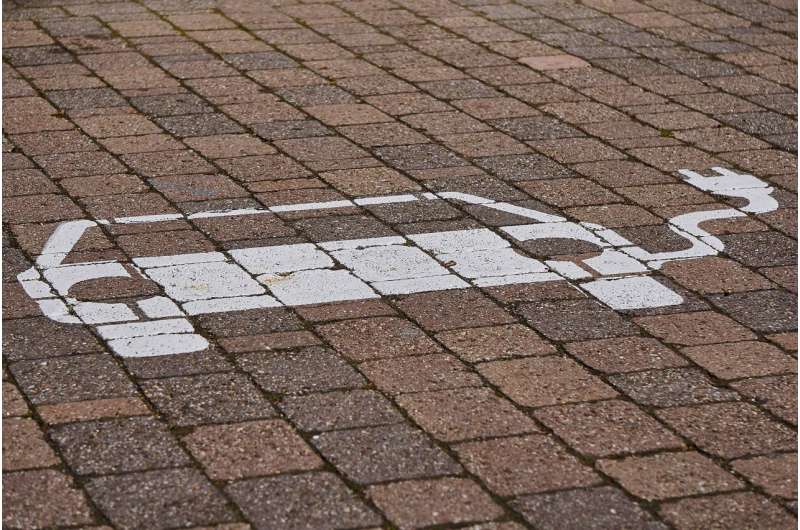
JUNE 7, 2024 by Alessio Levis and Thomas Bernauer, ETH Zurich
Collected at : https://techxplore.com/news/2024-06-switzerland-tax-electric-cars-electromobility.html
Anyone driving an electric car on Swiss roads today is traveling cheaply. Whether they are driving a minimobility vehicle, limousine or SUV—their fully electric cars run on electricity and are not subject to mineral oil tax. In contrast, petrol and diesel car drivers pay a tax of just under 80 cents per liter when filling up their tanks. Mineral oil tax generates over four billion Swiss francs a year, most of which goes towards constructing and maintaining the country’s roads.
The electrification of road transportation is a key element of the Swiss government’s climate policy. However, the increasing number of electric cars is leading to a shortfall in revenue from mineral oil tax. To plug the looming funding gap in road infrastructure, the Federal Council plans to introduce a replacement levy for electric cars and other alternative drive systems from 2030.
Financing roads versus promoting electromobility
This presents the federal government with the dilemma of having to tax electromobility in order to plug the funding gap in transport infrastructure. However, this could reduce people’s incentive to buy electric cars and slow down the electromobility transition. If the electrification of road transportation slows too much, it could jeopardize the Swiss government’s attainment of its net-zero target.
In a nutshell, the issue is to figure out the best way to tax electric cars without putting a brake on the electromobility transition. Given the expected referendum on this issue, it is valuable to know how the Swiss population stands on the dilemma outlined above.
As part of the Swiss Mobility Panel, we analyzed the political acceptance of a replacement levy on electric cars in a representative sample of the Swiss resident population carried out using survey experiments. Our short report entitled New levy on electric cars (in German) summarizes the findings.
What would the new levy amount to?
We don’t yet know the precise contents of the proposed legislation. The Federal Council is expected to submit a draft law to Parliament for debate before the end of this year. The Swiss people will vote on it in a referendum in around three to four years.
Some key figures are already known: For example, the replacement levy is to be around the same amount as the mineral oil tax. According to initial estimates by the Federal Roads Office (FEDRO), the levy could amount to around 5.6 cents per kilometer. This means that a person driving 15,000 kilometers per year would incur an additional burden of 8,400 Swiss francs in ten years.
The preparation of the draft legislation raises some key questions that will have a major influence on the extent of its acceptance. For example, in terms of a tariff model: should electric cars be taxed at a flat rate or according to weight and performance to ensure that larger and more powerful cars are taxed more heavily—as is already the case today with internal combustion engine vehicles (ICEVs)?
Or according to a measurement model: how can the kilometers driven be recorded without violating an individual’s privacy? This information is not collected for ICEVs.
The majority are in favor of a replacement levy
Our findings indicate that the Swiss population is in favor of a replacement levy for electric cars: Specifically, 54% of respondents are in favor of a levy calculated according to a car’s weight and performance, and distance driven measured by a GPS device.
Further analyses show that most people are currently in favor of a tariff model. A mere 37% are in favor of methods that fail to take a car’s weight or performance into account and would tax all electric cars equally. This sends a clear signal to policymakers.
Things are not so clear when it comes to measuring the distance driven. Although the majority are in favor of models involving GPS measurement, almost two-thirds of respondents are concerned about violations of their privacy. It is therefore to be expected that the exact measurement method will play a key role in determining the political feasibility of a replacement levy in future. Specifically, it must be clarified whether only the distance traveled in kilometers or also other data such as location and time needs to be transmitted.
More information: Levis et al, Neue Abgabe auf Elektroautos: Wie sollte diese aus Sicht der Schweizer Wohnbevölkerung aussehen?, ETH Zurich (2024). DOI: 10.3929/ethz-b-000677077

Leave a Reply